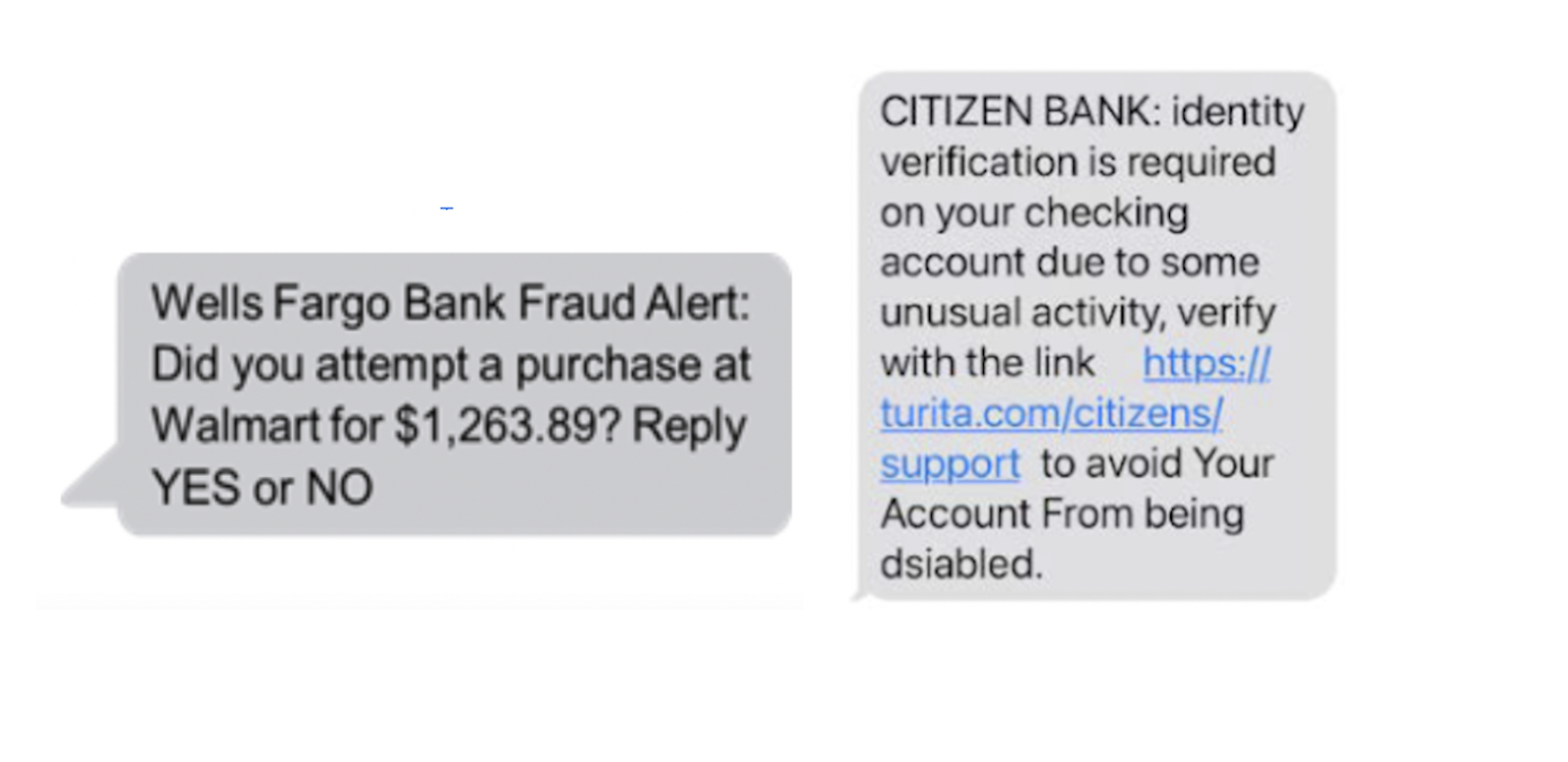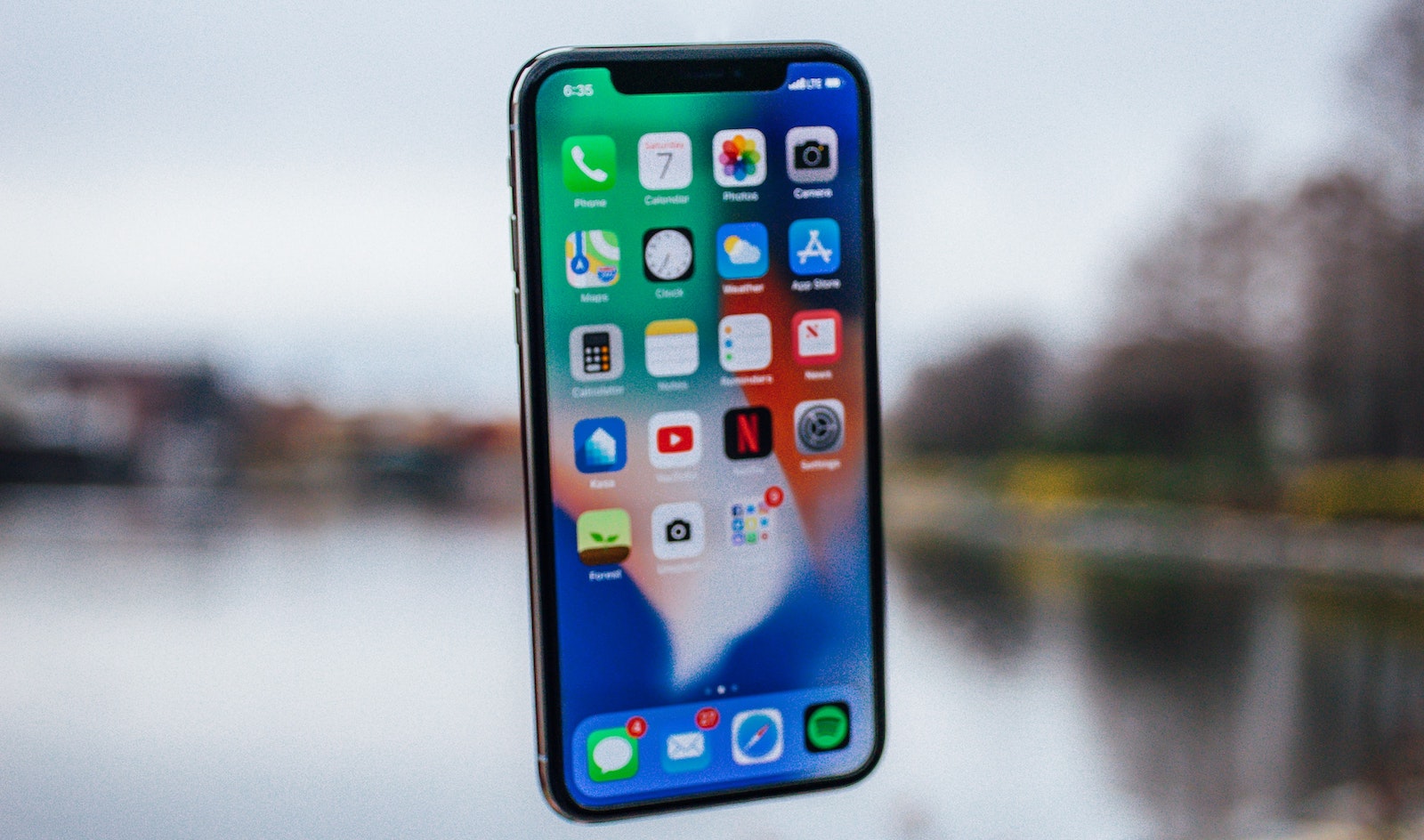
The top text scams of 2022? Messages impersonating banks increased 20-fold since 2019
Scam robotexts are aimed at causing you to panic for just long enough to rip you off

The Federal Trade Commission (FTC) just released an analysis that said Americans lost $330 million to text message scams in 2022. That’s double from 2021, a stunning increase. The top five scam texts comprised more than 40% of randomly sampled texts last year, the FTC said.
The top scam message: Fake bank security messages, often impersonating large banks. Popular “senders” include Chase, Bank of America, Citi and Wells Fargo, which are the four largest banks and have millions of customers. Text messages claiming to be from any one of those are almost surely going to reach some people who actually are customers of those banks. That increases the odds of someone falling for the scam.
The bank texts usually says that a large payment has been made from the account, and the person needs to call this number to stop it. Of course, no payment has been made, but some people might understandably be alarmed and make a bad decision to call the number, rather than look up the actual number for their bank. Those who believe the text and respond, or call the number and start panicking are then connected to a fake bank representative. Next steps could involve the consumer sharing log in information or two-factor authentication codes meant to be an extra security measure.
Scam texts such as these have increased 20-fold since 2019. Why? Because they work often enough to make them worthwhile for the con artist. Even one or two victims a day could yield thousands of dollars, perhaps tens of thousands of dollars. That’s pretty good for a day’s work.
The FTC says texts such as these are designed to create “a sense of urgency” that something really bad will happen if they don’t respond, or something really good will happen if they don’t respond.
The rest of the top five text message scams from 2022:
- Claims about free gifts or prizes, usually from a retailer or cell phone company.
- Claims about package delivery problems from USPS, UPS or FedEx.
- Bogus job offers for tasks such as mystery shopping and car wrapping.
- Security alerts pretending to be from Amazon.
The two best ways to avoid being scammed:
Never engage with unexpected texts, emails or phone calls to confirm or provide any personal information.
Never pay anyone you weren’t expecting to pay through Zelle, Venmo, PayPal, with gift cards or wire transfers.
How to report scam or unwanted texts:
The FTC offers ways to report and block future scam texts. Unfortunately, they generally involving opening the message, which isn’t advisable if you know it’s bad. But if you’ve already opened it, then go ahead and report it. This can help you and other consumers.
- Forward it to 7726 (SPAM). This helps your wireless provider spot and block similar messages.
- Report it on either the Apple iMessages app or Google’s Messages app for Android users.
- Report it to the FTC at ReportFraud.ftc.gov.


How to stop robocalls and robotexts and avoid scams
Topics
Find Out More

5 steps you can take to protect your privacy now

Fixed for the Holidays

Trouble in Toyland 2023

